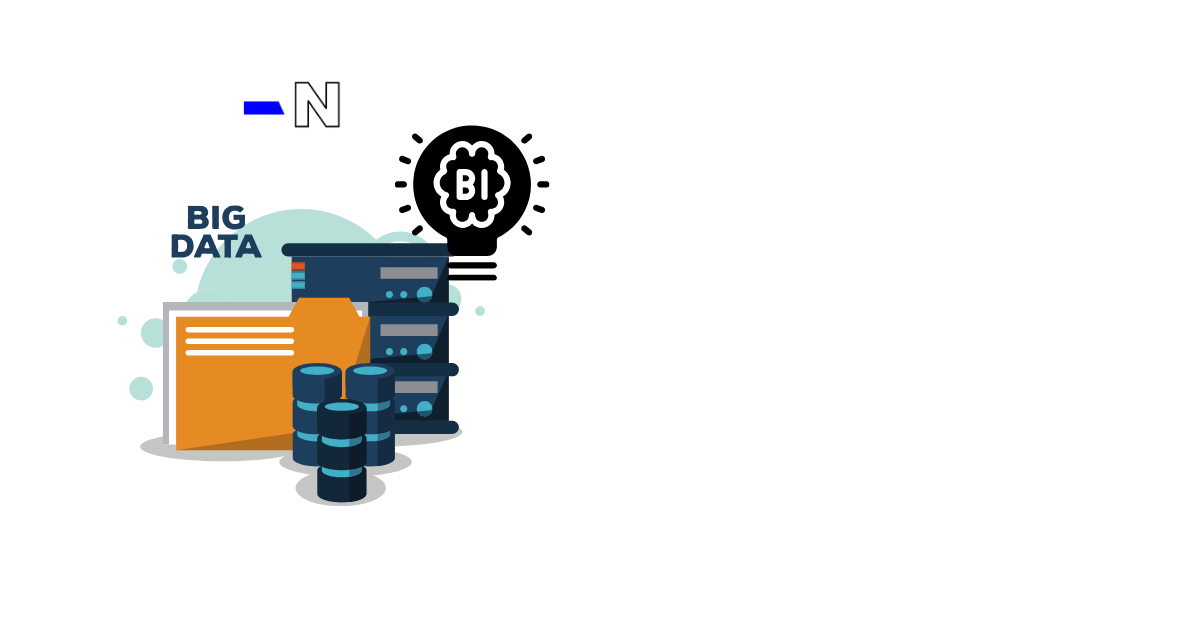Big Data and BI: Empower Your Business
Introduction
What is big data?
Big data is a term that refers to the large and complex datasets that are generated by various sources, such as social media, sensors, weblogs, transactions, etc. Big data is characterized by its volume, velocity, variety, integrity, and value. Big data can provide insights into customer behavior, market trends, operational efficiency, and more.
What is business intelligence?
Business intelligence (BI) is a process that involves collecting, analyzing, and presenting data to support decision-making and improve performance. BI can help businesses to understand their strengths, weaknesses, opportunities, and threats. BI can also help businesses to monitor their key performance indicators (KPIs), such as revenue, profit, customer satisfaction, etc.
How can big data and BI be used together to empower businesses?
Big data and BI can be used together to empower businesses by providing them with a competitive edge in the market. By combining big data and BI, businesses can:
- Discover new patterns and trends that are hidden in the data
- Enhance their decision-making with data-driven insights
- Optimize their processes and operations with real-time feedback
- Innovate and create new products and services that meet customer needs
- Increase their customer loyalty and retention with personalized offers and recommendations
Benefits of using big data and BI
Some of the benefits of using big data and BI are:
- Increased revenue and profitability
- Reduced costs and risks
- Improved customer experience and satisfaction
- Enhanced brand reputation and awareness
- Greater agility and flexibility
How big data and BI can be used to improve SEO
SEO (search engine optimization) is a process that aims to increase the visibility and ranking of a website on search engines, such as Google or Bing. SEO can help businesses to attract more organic traffic, leads, and conversions. Big data and BI can be used to improve SEO by:
Identify and target the right keywords
Keywords are the words or phrases that users type into search engines to find what they are looking for. Keywords are essential for SEO, as they determine how relevant a website is to a user’s query. Big data and BI can help businesses to identify and target the right keywords by:
- Analyzing the search intent and behaviour of their target audience
- Finding the most popular and profitable keywords in their niche
- Comparing their keywords with their competitors’ keywords
- Tracking the performance and ranking of their keywords over time
Create high-quality, relevant content
Content is the information and media that a website provides to its visitors. Content is crucial for SEO, as it influences how engaging and useful a website is to a user. Big data and BI can help businesses create high-quality, relevant content by:
- Understanding the needs, preferences, and pain points of their target audience
- Generating content ideas based on the keywords and topics that their audience is interested in
- Optimizing their content for readability, clarity, structure, and length
- Adding multimedia elements, such as images, videos, infographics, etc., to enhance their content
Build backlinks from high-authority websites
Backlinks are the links that point from one website to another. Backlinks are important for SEO, as they indicate how trustworthy and authoritative a website is to a search engine. Big data and BI can help businesses build backlinks from high-authority websites by:
- Identifying the websites that have a high domain authority (DA) and relevance in their niche
- Finding the gaps and opportunities in their backlink profile
- Creating valuable content that attracts natural backlinks from other websites
- Reaching out to influencers and bloggers who can link to their website
Track and measure SEO results
SEO results are the outcomes that a website achieves from its SEO efforts. SEO results can include metrics such as traffic, ranking, conversions, etc. Big data and BI can help businesses to track and measure SEO results by:
- Setting up goals and KPIs for their SEO strategy
- Collecting and analyzing data from various sources, such as Google Analytics, Google Search Console, etc.
- Creating dashboards and reports that visualize their SEO performance
- Evaluating their SEO ROI (return on investment) and identifying areas for improvement
Case studies of businesses that have successfully used big data and BI to improve their SEO
Here are some examples of businesses that have successfully used big data and BI to improve their SEO:
[Netflix]: Netflix is a streaming service that provides movies and TV shows to its subscribers. Netflix uses big data and BI to improve its SEO by:- Using natural language processing (NLP) to analyze the subtitles of its content and generate relevant keywords
- Using machine learning (ML) to create personalized recommendations based on the viewing history of its users
- Using A/B testing to optimize its landing pages and titles for conversions
- Using data mining to discover the most searched and purchased products in its niche
- Using semantic analysis to create product descriptions that match the user intent and queries
- Using user feedback and reviews to improve its product quality and customer satisfaction
- Using geospatial analysis to map the demand and supply of its listings in different locations
- Using natural language generation (NLG) to create unique and engaging content for its listings
- Using social media analysis to monitor its brand sentiment and reputation
Conclusion
In conclusion, big data and BI are powerful tools that can help businesses to empower their business and improve their SEO. By using big data and BI, businesses can:
- Identify and target the right keywords for their niche
- Create high-quality, relevant content for their audience
- Build backlinks from high-authority websites in their niche
- Track and measure their SEO results and ROI
